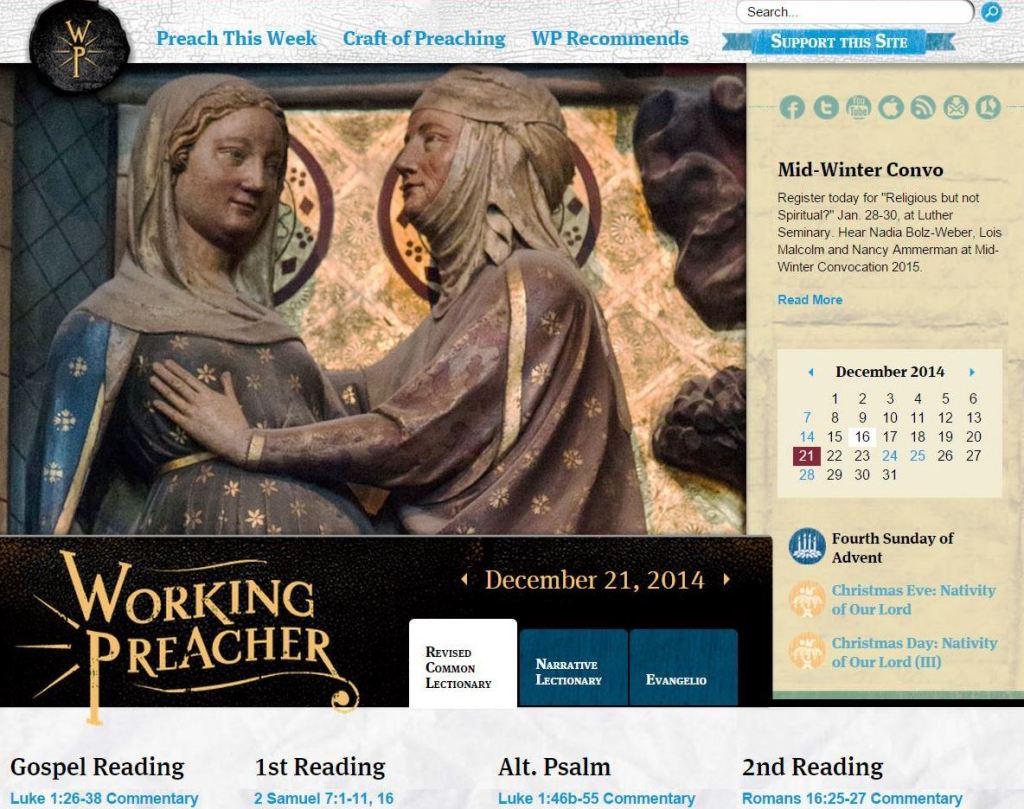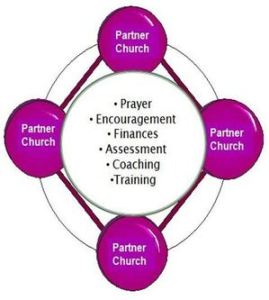Following (with the author’s permission) is text excerpted from a post at The Walking Green blog. Given that many of our congregations seek to assist the poor, this post provides some helpful guidance. My wife Vicki met the author, Liz McEwen, through a local ministry that serves pastors’ wives. She and her husband are raising their children in an economically depressed neighborhood in Cincinnati. So she writes on this topic with in-depth, first-hand knowledge. The original post can be read online at https://ejmcewan.wordpress.com/2014/10/26/how-your-church-can-strengthen-the-hand-of-the-poor/.
– GCI pastor George Hart (Cincinnati, Ohio)
How Your Church Can “Strengthen The Hand” of the Poor
by Liz McEwen
If any of my Christian friends want to know what their churches can do to address the issue of poverty right now, I have a few suggestions.
Address poverty at its root. Poverty is not as simple as a lack of money or consistent employment. It is not always (or not only) a result of personal error. It is a complex cultural paradigm and often generations in the making. Solving the problem of poverty means tackling it at its root, in the systematic injustices and personal failures that perpetuate it. If you really want to pull someone out of a cycle of poverty, you have to get strategic and address a few key issues. Find an issue that you can (or your church can) personally address and commit to it. You may not be able to address it all, but you can certainly do something.
Educate. Without a proper education (at least through high school), the opportunities available to young men and women are limited. Something as simple as after-school tutoring could be a place to start, but perhaps you are capable of more. Other ideas: Start a community school or a co-op; become a teacher at a struggling school system; sit on the school board; become a high school academic counselor; create a college scholarship program.
Promote Strong Family Systems. There is a strong relationship between the stability of a family structure and poverty. In 2013, of the 11% of the American population living in poverty, 31% of them were households with a single mother. According to the statistics that same year, a married couple is much more likely to avoid poverty in the first place. Seeing as we are now entering an era in which almost half of the babies born are born into unmarried households, this might be an issue that the Church can address. Not by shaming unwed mothers. Not by ousting unmarried families. Not by coercing marriage. But by strengthening existing couples and encouraging healthy relationships, teaching basic conflict management skills, marital counseling, and by encouraging young women to abstain from sex (crazy, I know) to avoid becoming another “poor, unwed mother” statistic. For women (and men) currently parenting alone, churches can provide training in parenting skills and support in the way of daycare and counseling. For children who have already become victims of broken families, foster and short-term respite care, as well as adoption (open or closed, through public or private agencies) are great opportunities.
Improve the Quality of Life and Housing Opportunities. Have you considered the environmental and lifestyle issues that make it difficult for people to move out of a cycle of poverty? The availability of healthy food, access to public transportation options, clean, safe, and well-maintained neighborhoods—they all matter. What if your church started a housing ministry that rented or sold decent homes to low-income families without the mess of government subsidies? Or started a community housing co-op that enabled lower-income members to build equity in shared property? What if you started a community garden that provided fresh produce to local families in need or organized a block watch to promote community-led policing? You can plant trees for increased safety and air quality; you could provide free medical care or health education.
Teach Job Skills and Provide Employment. What would you do if you wanted to find a job that would provide for your family, but had a minimum education, few employable skills, or possibly even a felony on your record that (in an employer’s eyes) disqualified you from hundreds of available jobs? You or your church can help teach important skills that help secure employment for the otherwise unemployable: computer and technical skills; handyman, carpentry, or maintenance skills; cooking or cleaning. You could also take it one step further and start a business that employs those who have a difficult time finding employment or hire an under-employed person in your community to do odd jobs (at your church or your home) for extra cash to help make ends meet.
Give Financial Guidance. There are financial skills that some wealthier people take for granted—things they learned from their parents or peers about how to manage their money, how to save money and stay out of debt, or how to make smart investments. Don’t take for granted that other people know these things. Things as simple as how to open a bank account, balance a check book, or pay a bill online might be a mystery to some folks. Without basic financial knowledge and wisdom about managing wealth, a sudden increase in income that comes with new employment can destroy a family’s financial future. Your church can provide something as simple as free financial counseling or as complex as interest-free personal or business loans.
Fight Institutional Injustice. Sure, plenty of people living in poverty are victims of their own bad decisions. But, many are not. Regardless of how they got into the mess they are in, there are mountains upon mountains of institutional injustices that can make it feel impossible for them to climb out. Christians should be in the business of pleading the case of victims. Either find a way to advocate for those who are in danger of being further victimized and left with no resources and no support, or use your skills and influence to work within the system to bring justice on an institutional level. The judicial system, banking, legislation, urban planning and community development, immigration—take your pick. Globally, nationally, or locally.
Soothe the symptoms of poverty. Emergency assistance will not stop the cycles of poverty, but it can soothe the symptoms. Christians should not be afraid to meet a need where an obvious need exists. Educate yourself about what resources exist in your community, but also consider how you can step in with a more personal touch. A lot of us are afraid of being taken advantage of or being made fools, but churches should be places of hospitality and generosity. You can be wise about the help you offer while still being generous and merciful. Keep healthy boundaries, but keep your doors open—physically, spiritually and emotionally. Pray that God refines your discernment to know where the real needs are.
You may have noticed that I didn’t list “Provide Spiritual Guidance” on the list above. The reason is that I take for granted that Christians understand that they have a responsibility to preach the gospel to all people whether poor or wealthy. Spiritual poverty knows no economic boundaries, so providing spiritual guidance should be a given, at all times, to all people. “Strengthening the hand of the poor,” however, is a particular command given to the church in relationship to a particular group of people and can be discussed with spiritual realities presupposed.









